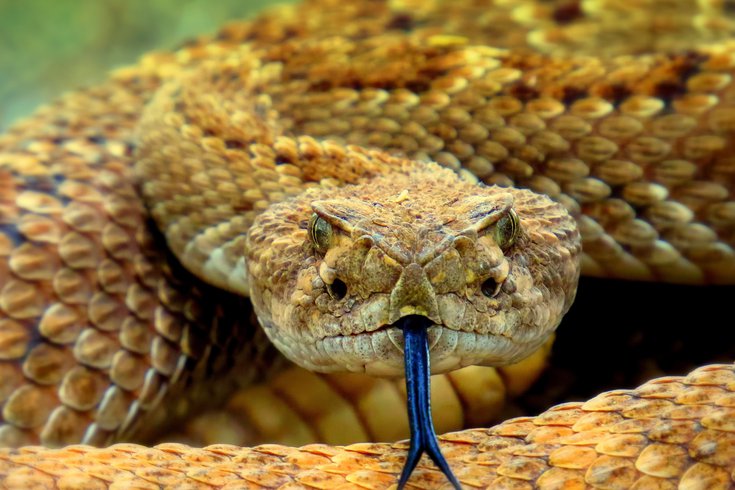
March 28, 2023
 Meg Jerrard/Unsplash.com
Meg Jerrard/Unsplash.com
While it is not illegal to own venomous reptiles as pets, a Philadelphia Zoo curator of reptiles and amphibians warns against housing the potentially dangerous animals.
A western Pennsylvania man was found dead last week inside a home that contained more than 150 reptiles, including dozens of venomous snakes. An autopsy to determine the cause of death takes six to eight weeks, the Beaver County Coroner's Office said, but the scene illustrates the dangers of handling exotic animals.
This case also comes on the heels of a recent caiman sighting in FDR Park in South Philadelphia. That reptile, believed to have been an abandoned pet, was later euthanized after ACCT Philly removed it from the park.
Working with exotic animals requires patience, training and even some courage. Most people handling them at zoos have studied zoology, biology and other animal-related fields, such as conservation, and had extensive experience in animal management training.
But Lauren Augustine, curator of reptiles and amphibians at the Philadelphia Zoo, says that even with the right training and protocols in place, there are still assumed risks to working with exotic animals, which is why their care should be left to professionals.
"I personally don't think that people who don't have the proper training and emergency protocols in place should be able to acquire or work with dangerous animals such as venomous snakes and crocodilians, because of the risks not just for themselves, but to the people around them and animals," she said.
Exotic pets are more often to escape homes or be abandoned by owners, a study from Rutgers University suggests.
Researchers kept data on 1,722 reptile and amphibian species in the U.S. exotic pet trade between 1999 and 2016. They concluded that many of these animals are sold for cheap when they are still small, but are often dumped when they grow larger.
In Pennsylvania, the Boat and Fish Commission only regulates native species, so it is up to the jurisdiction of local municipalities to control animals. For example, a boa constrictor is not native to Pennsylvania, so therefore, it's not regulated. But a timber rattlesnake, native to the state, would be.
Augustine said that she understands that the reptile trade is big. Still, unfortunately, deadly incidents are bound to happen when these animals, which have different communication patterns than humans, are kept in unfamiliar environments.
Last summer, police in Lehigh Valley shot a 15-foot pet snake that was wrapped around a man's neck, causing cardiac arrest. The 27-year-old died days later due to a lack of oxygen to the brain.
About 7,000–8,000 people are bitten by venomous snakes in the United States each year, with about 5 people dying, the CDC says.
"We utilize a lot of different tools in zoological settings to reduce the risk of these animals," Augustine said. "We use hooks, we use tongs, we use appropriately lengthy tools to help us do our jobs. So we stay out of the animal's strike range. We have shifts and the ability to move snakes from one space to another to safely clean and manage them.
"So again, without knowing how this person was managing these animals, it seems to me that he got in over his head."
If you come across an abandoned exotic animal, contact ACCT Philly or one of the licensed removal companies listed on its website for assistance.